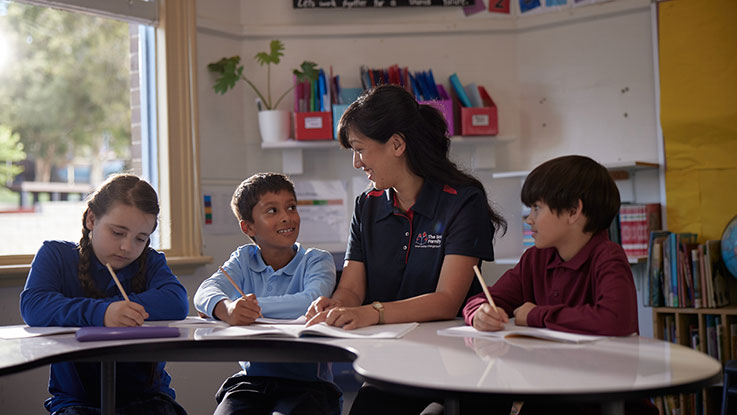
Time
- Use a planner or calendar to map out homework and activities
- Set timers for short bursts of focused work (e.g. 20 minutes)
- Build in breaks and downtime

Help your child set goals that are:
Example: “I want to finish my science project by Friday by working on it for 20 minutes each day after school.”



When I feel overwhelmed, I take a break and go for a walk. Then I come back and try again.





Your Family Partnership Coordinator is here to support you through each stage of your child's educational journey.
They can support you to problem-solve any challenges that may come up that affect your child's education.
They can also connect you to educational support programs or services in the community if you decide that's what you need.
You can find your Family Partnership Coordinator's contact details in My Smith Family.
End of article


